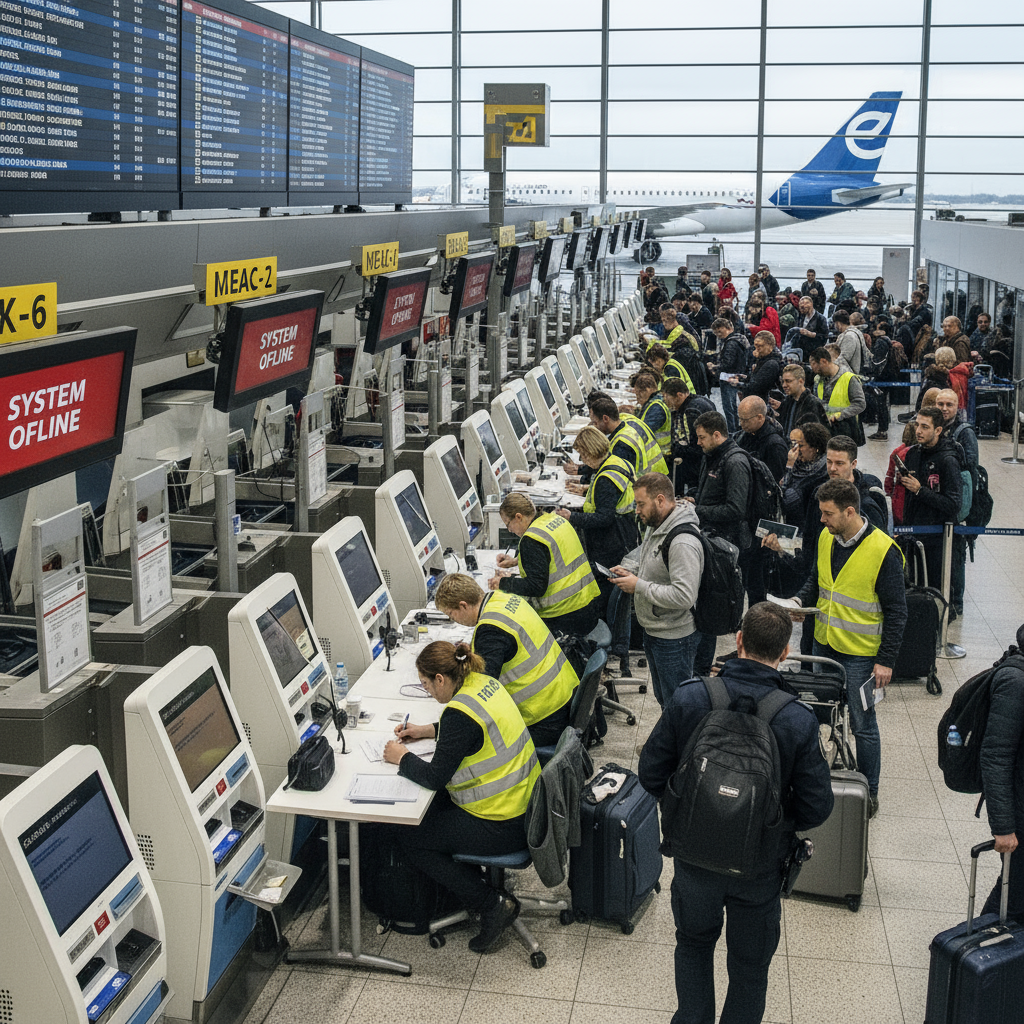Physical Address
304 North Cardinal St.
Dorchester Center, MA 02124
Physical Address
304 North Cardinal St.
Dorchester Center, MA 02124
Global aviation news tracker
Global aviation news tracker

Systems at Collins Aerospace were hit by a cyberattack that left Heathrow and other European airports handling hundreds of delayed flights manually.
The Collins Aerospace cyberattack forced airlines and ground handlers to revert to manual check-in and baggage handling, leading to widespread disruption at major European airports, including London Heathrow. Airlines reported hundreds of delayed departures as electronic systems used for processing passengers and bags were unavailable.
UK authorities say they arrested a suspect in West Sussex in connection with the incident, and investigations are ongoing. Airport operations worked around the clock to clear backlogs while passengers faced longer queues, missed connections and extra rebooking steps.
Collins Aerospace provides hardware and software used by airlines and ground crews; when those systems go offline, the knock-on effects ripple through check-in, baggage reconciliation and turnaround times. Industry experts warned that ransomware and targeted intrusions against aviation’s digital infrastructure are an increasing risk for carriers and airports.
Passengers travelling through affected hubs were advised to check flight status with their airline, arrive earlier for connections and keep boarding documentation accessible. While digital systems were being restored, airlines prioritized flights with tight connections and international departures to limit cascading delays.
Beyond immediate disruption, the episode highlights a broader vulnerability in aviation: modern airports and carriers increasingly rely on interconnected IT and operational technology (OT). As the sector digitalises, security experts urge stronger cyber hygiene, segmented networks and incident-response drills to reduce the chance of similar stoppages.